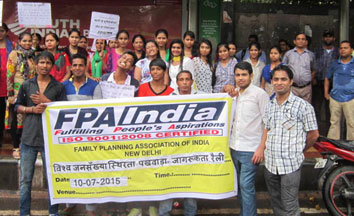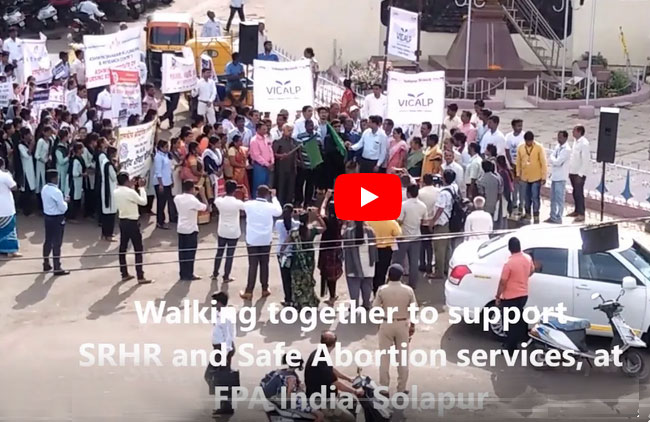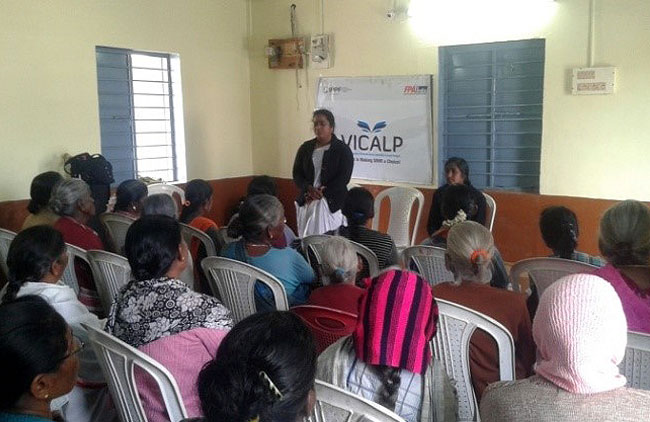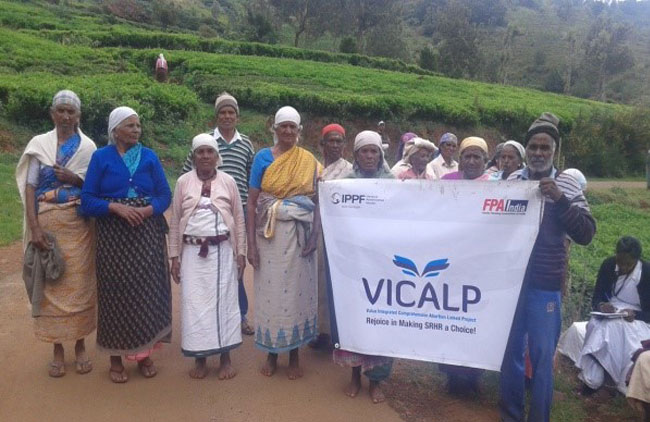ASHOC Project: Transforming Male Engagement in Reproductive Health
The ASHOC (Assisting Safe Health Outcomes in the Community) project, supported by Harish & Bina Shah Foundation and implemented by the Family Planning Association of India across Mumbai and Lucknow, represents a groundbreaking initiative addressing a critical gap in India's family planning landscape. With male sterilization accounting for merely 0.3% of all contraceptive methods compared to 37.9% for female sterilization, the project successfully challenges deeply entrenched cultural norms and patriarchal attitudes that have historically excluded men from reproductive health responsibility. The project is being implemented in two phases: April 2023 to June 2024, and November 2024 to October 2025.
Through a comprehensive, multifaceted approach, ASHOC has reached over 162,500 people across urban slums and rural communities, utilizing innovative strategies including community mobilization, workplace interventions, comprehensive sexuality education, and the introduction of Male Link Workers (ASHOCs)—male counterparts to female ASHA workers who enable comfortable, stigma-free discussions about sexual and reproductive health. The first phase achieved remarkable results with 280 Non-Scalpel Vasectomy (NSV) acceptors, significantly surpassing the initial target of 160, training of 11 NSV service providers, 31 Male Health Volunteers, 162 outreach health sessions benefiting over 20,000 people, and 152 comprehensive sexuality education sessions reaching nearly 10,000 young people.
The second phase introduced two distinct service delivery models tailored to local contexts. Lucknow adopted a Mobile Education cum Service Unit (MESU) model, where teams of service providers and outreach staff travel to distant areas with limited accessibility to provide information and services directly. Mumbai implemented a Satellite Clinic model, establishing clinics close to communities to improve service access following awareness campaigns. As of August 2025, the second phase has reached 63,500 people through information, education, and communication activities, served 46,966 unique SRH clients, and supported 41 additional NSV acceptors, bringing the total to 321 families where men have actively assumed responsibility for family planning.
The project's success stems from its culturally sensitive understanding of barriers men face—including the association of fertility with masculinity, economic concerns about wage loss, social stigma, and limited awareness of male contraceptive options. By bringing services directly to workplaces including construction sites, factories, and labor Addas (migrant shelter homes), and by introducing fixed-day NSV services that eliminated appointment requirements, ASHOC dramatically improved accessibility. The baseline survey revealed that men preferred discussing sexual health with male health workers and expressed interest in confidential consultation services, insights that shaped strategic interventions including the deployment of ASHOC workers and the development of accessible service models.
Beyond quantitative achievements, ASHOC's impact resonates in transforming family dynamics and community attitudes. Focus group discussions with NSV acceptors revealed that proper counselling and information were crucial to decision-making, with participants rating FPAI services at the highest level and emphasizing that the procedure was simpler and less time-consuming than expected. The project demonstrated that workplace interventions, improved spousal communication, and engagement of male health workers could effectively reduce stigma and transform attitudes that have persisted for generations, marking a significant cultural shift toward gender-equitable health decisions.
The ASHOC model has proven its scalability potential, particularly for regions with high unmet family planning needs and mobile populations. As internal migration brings young workers to new environments often lacking crucial sexual and reproductive health knowledge, programs like ASHOC serve the dual purpose of protecting vulnerable populations from exploitation and health risks while fostering development of informed, responsible citizens. The initiative's success suggests that sustained, long-term implementation could yield even more profound impacts on women's health, family welfare, and societal attitudes toward shared reproductive responsibility, establishing a replicable framework for advancing gender equity in family planning across India.
 One: Strengthening static
One: Strengthening static
clinics to deliver SRH services + One: Strengthening static
One: Strengthening static
clinics to deliver SRH services + One: Strengthening static
One: Strengthening static
clinics to deliver SRH services +
It is envisaged that a wide range of family planning and SRH care, including comprehensive abortion care, sterilisation services, and dedicated SRH service sessions for adolescents and men, in addition to IPPF's Integrated Package of Essential Services, will be delivered through model of programming one. The delivery vehicles will be three well-equipped static clinics of FPA India known as Reproductive and Family Planning Centres. New Delhi, Singhbhum and Yamunanagar branches are chosen to implement this model.
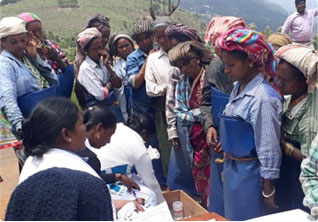
In order to enhance the quality of SRH care, the model of programming two, which is functional through outreach, tries to reach out to remote areas to make SRH care available for the most needy. Like model of programming one, model of programming two also focuses on improving care through offering a wide range of family planning and SRH initiatives, including comprehensive abortion care and sterilisation services.
The model is being implemented through dedicated SRH service sessions for adolescents, women as well as men. To enable men to access SRH services, the sessions for men and boys are organised in the evening or at a convenient time suggested by the group.
A mobile outreach team identifies high-need areas in rural outreach as well slum pockets for fixed day and special service sessions at community premises. Through the flexible service delivery points, the team not only offers SRH services but also disseminates information, sensitises the community to create a demand for services and mobilises referrals. Model of programming two is implemented at Mohali, Solapur, Bidar, Nilgiris and Madurai branches.
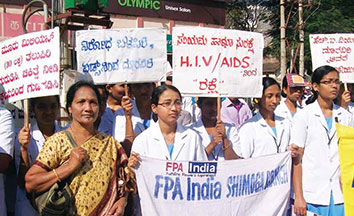
FPA India is venturing into social franchising under VICALP at the branches implementing model of programming two, which caters to outreach-based services. The organisation has previous experience in implementing social franchising models, however, it was a short stint. FPA India is trying to initiate cross-sector partnerships to expand the reach of family planning services through VICALP social franchising. The idea is to reach out to the population and areas with low contraceptive usage and overall improve the quality of SRH services being provided by private medical service providers.
